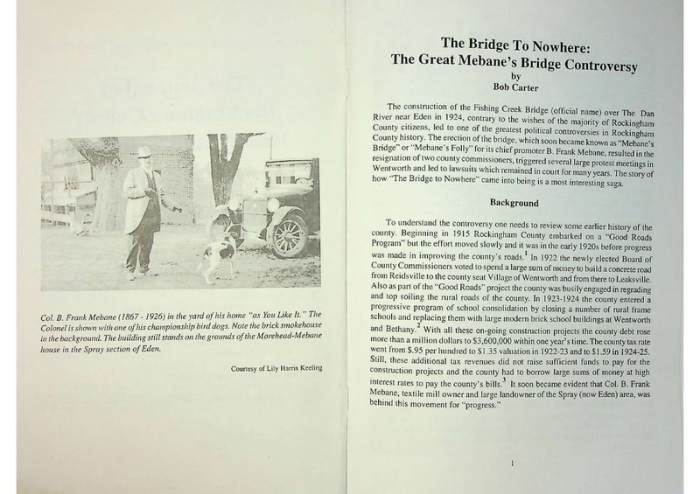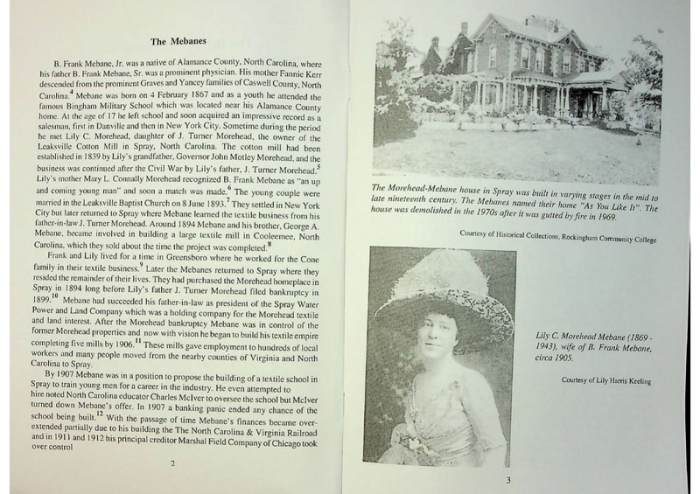In Rockingham County v. Luten Bridge Co., the Supreme Court addressed the scope of the Commerce Clause and the Dormant Commerce Clause. The case involved a local government’s attempt to regulate a bridge that was part of the national highway system.
The Court’s decision in Rockingham County has had a significant impact on the ability of state and local governments to regulate commerce. The case has been cited in numerous subsequent cases involving the Commerce Clause and the Dormant Commerce Clause.
Procedural History
The case of Rockingham County v. Luten Bridge Co. began in 2002 when Luten Bridge Co. filed a lawsuit against Rockingham County, North Carolina. Luten Bridge Co.
alleged that the county’s ordinance requiring a permit for the construction of bridges over county roads violated the Commerce Clause of the U.S. Constitution. The district court ruled in favor of Rockingham County, but the Fourth Circuit Court of Appeals reversed the decision, holding that the ordinance was unconstitutional.
The Supreme Court granted certiorari in 2005.
Legal Issues
The legal issues raised in the case were the scope of the Commerce Clause and the Dormant Commerce Clause. The Commerce Clause gives Congress the power to regulate interstate commerce. The Dormant Commerce Clause is a doctrine that prohibits states from enacting laws that discriminate against interstate commerce.
Majority Opinion

The Supreme Court ruled in favor of Luten Bridge Co. in a 5-4 decision. Justice Kennedy wrote the majority opinion, which held that the county’s ordinance violated the Dormant Commerce Clause. The Court found that the ordinance was not necessary to protect public safety and that it discriminated against interstate commerce.
Dissenting Opinions: Rockingham County V. Luten Bridge Co.

Justice Stevens wrote a dissenting opinion, joined by Justices Souter, Ginsburg, and Breyer. Justice Stevens argued that the ordinance was necessary to protect public safety and that it did not discriminate against interstate commerce.
Justice Thomas also wrote a dissenting opinion, joined by Justice Scalia. Justice Thomas argued that the Dormant Commerce Clause should not apply to local governments.
Impact of the Decision

The decision in Rockingham County v. Luten Bridge Co. has had a significant impact on state and local governments’ ability to regulate commerce. The decision has made it more difficult for states and localities to enact laws that discriminate against interstate commerce.
The decision has been applied in subsequent cases to strike down a variety of state and local laws that discriminated against interstate commerce. For example, in the case of City of Philadelphia v. New Jersey (2016), the Supreme Court struck down a Philadelphia law that required businesses to use local workers on construction projects.
User Queries
What is the Commerce Clause?
The Commerce Clause is a provision of the United States Constitution that gives Congress the power to regulate commerce among the states.
What is the Dormant Commerce Clause?
The Dormant Commerce Clause is a doctrine that prevents states from enacting laws that discriminate against interstate commerce.
What was the issue in Rockingham County v. Luten Bridge Co.?
The issue in Rockingham County v. Luten Bridge Co. was whether a local government could regulate a bridge that was part of the national highway system.
What did the Supreme Court hold in Rockingham County v. Luten Bridge Co.?
The Supreme Court held that the local government could not regulate the bridge because it was part of the national highway system and was therefore subject to federal regulation.